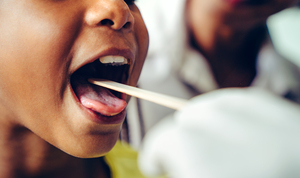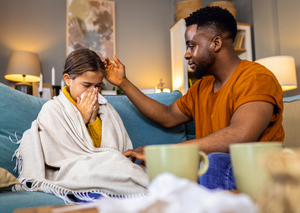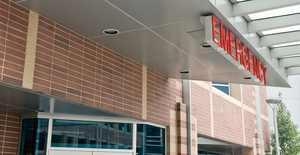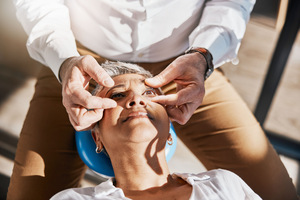Book an STD Test in Paradise Valley, AZ
Own a clinic? Add your location.
Help patients book appointments with you on Solv. It's free!
19 instant-book locations
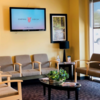
NextCare Urgent Care, Camelback
NextCare Urgent Care

NextCare Urgent Care, Oak
NextCare Urgent Care
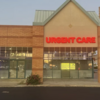
Gateway Urgent Care, Val Vista
Gateway Urgent Care

Gateway Urgent Care, Gilbert
Gateway Urgent Care
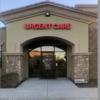
Gateway Urgent Care, Higley
Gateway Urgent Care

Gateway Urgent Care, Power Ranch
Gateway Urgent Care

Gateway Urgent Care , Queen Creek
Gateway Urgent Care

Labcorp
Labcorp
Self-pay pricing
Clear self-pay prices
No more surprise bills. Solv is committed to making getting healthcare as easy as buying groceries at the store, including knowing the price of care upfront.

Labcorp
Labcorp
Self-pay pricing
Clear self-pay prices
No more surprise bills. Solv is committed to making getting healthcare as easy as buying groceries at the store, including knowing the price of care upfront.

Self-pay pricing
Clear self-pay prices
No more surprise bills. Solv is committed to making getting healthcare as easy as buying groceries at the store, including knowing the price of care upfront.

Alliance Urgent Care, Phoenix
Alliance Urgent Care

Labcorp
Labcorp
Self-pay pricing
Clear self-pay prices
No more surprise bills. Solv is committed to making getting healthcare as easy as buying groceries at the store, including knowing the price of care upfront.

Labcorp
Labcorp
Self-pay pricing
Clear self-pay prices
No more surprise bills. Solv is committed to making getting healthcare as easy as buying groceries at the store, including knowing the price of care upfront.

Self-pay pricing
Clear self-pay prices
No more surprise bills. Solv is committed to making getting healthcare as easy as buying groceries at the store, including knowing the price of care upfront.

Labcorp
Labcorp
Self-pay pricing
Clear self-pay prices
No more surprise bills. Solv is committed to making getting healthcare as easy as buying groceries at the store, including knowing the price of care upfront.

Labcorp
Labcorp
Self-pay pricing
Clear self-pay prices
No more surprise bills. Solv is committed to making getting healthcare as easy as buying groceries at the store, including knowing the price of care upfront.

Labcorp
Labcorp
Self-pay pricing
Clear self-pay prices
No more surprise bills. Solv is committed to making getting healthcare as easy as buying groceries at the store, including knowing the price of care upfront.

Self-pay pricing
Clear self-pay prices
No more surprise bills. Solv is committed to making getting healthcare as easy as buying groceries at the store, including knowing the price of care upfront.

Self-pay pricing
Clear self-pay prices
No more surprise bills. Solv is committed to making getting healthcare as easy as buying groceries at the store, including knowing the price of care upfront.

Self-pay pricing
Clear self-pay prices
No more surprise bills. Solv is committed to making getting healthcare as easy as buying groceries at the store, including knowing the price of care upfront.
Own a clinic? Add your location.
Help patients book appointments with you on Solv. It's free!
Overview of STD Testing in Paradise Valley
Who should get tested for STDs?
Anyone who is sexually active should consider getting tested for sexually transmitted diseases (STDs). This includes individuals who have had unprotected sex, those with multiple partners, and individuals who have shared needles. Additionally, if you are experiencing symptoms such as unusual discharge, burning during urination, or unexplained rashes or sores, you should get tested immediately. It's also worth noting that some STDs can be asymptomatic, meaning they present no symptoms, so regular testing is crucial even if you feel fine.
Importance of getting tested
Getting tested for STDs is a critical aspect of maintaining your health and the health of your partners. Early detection of STDs can prevent serious health complications such as infertility, certain types of cancer, and increased susceptibility to HIV. Moreover, many STDs are easily treatable when caught early. According to the CDC, regular STD testing is also an effective way to slow the spread of these diseases.
Std testing options in Paradise Valley, AZ
Urgent care and walk-in clinics
Urgent care centers and walk-in clinics are excellent options for STD testing in Paradise Valley. These facilities often offer same-day appointments, which you can book through Solv’s website and mobile app. One highly rated option is NextCare Urgent Care in Phoenix, just a short drive from Paradise Valley.
Primary care providers
Your primary care provider is another good option for STD testing. They can provide comprehensive testing and follow-up care. However, appointment availability may vary.
Free STD testing and community health centers
Community health centers often provide free or low-cost STD testing. These centers are a crucial resource for those without insurance or those who cannot afford the cost of testing.
At-home testing
At-home testing kits are another convenient option for STD testing. These kits can be ordered online, used in the privacy of your own home, and then sent back to a lab for analysis.
Prevalence of STDs in Paradise Valley
Paradise Valley, located in Maricopa County, has seen a steady increase in STD cases over the years, mirroring the national trend. The most commonly reported STDs in the area are chlamydia, gonorrhea, and syphilis. The rates of these STDs are somewhat lower than those in nearby cities such as Phoenix and Mesa, but higher than in surrounding counties like Coconino and Gila.
Risk factors related to STDs in Paradise Valley
Several factors contribute to the spread of STDs in Paradise Valley. These include unprotected sex, multiple sexual partners, and lack of regular testing. Additionally, certain demographic groups, such as young adults and men who have sex with men, are at a higher risk. Socioeconomic factors like lack of access to healthcare and education also play a role. It's important to note that anyone can contract an STD, so regular testing is crucial regardless of your risk factors.
Solv has strict sourcing guidelines and relies on peer-reviewed studies, academic research institutions, and medical associations. We avoid using tertiary references.
STD Testing FAQs
Where should I get an STD test in Paradise Valley?
In a doctor's office, a health clinic, or an urgent care center, you can get an STD test. If you're experiencing symptoms, it's best to visit a doctor's office, where they can also treat you or issue you a prescription. While some Paradise Valley clinics and urgent care centers allow walk-in appointments, it's advisable to make an appointment ahead of time to prevent excessive waits.
How long does it take to get STD test results?
Various testing are required for various STDs. Depending on the type of STD test you took, you may receive your results in two to ten days. Some outcomes may be immediately available. Your doctor may be able to diagnose an STD through a physical examination. In some cases, your doctor's office may only contact you if your test results are positive.
How much does an STD test cost in Paradise Valley?
The cost of STD testing is governed by several factors, including where you are tested, the type of test you need, and if you have health insurance. Some Paradise Valley clinics may offer free testing or testing on a sliding scale based on your income. Because of the cost, don't put off obtaining an STD test. With your doctor's office, discuss the cost and payment choices. Delaying STD treatment may have catastrophic implications.
Does insurance cover STD testing in Paradise Valley?
The cost of STD testing is governed by a number of factors, including the location of the test, the type of test required, and whether or not you have health insurance. Some clinics may provide free or sliding-scale testing, depending on your income. Don't let the expense of an STD test deter you from getting one. With your doctor's office, discuss the price and payment choices. Delaying STD treatment could have catastrophic ramifications.
How do they test for STDs in Paradise Valley?
There are around 20 different forms of STDs, each with its own set of diagnostic tests. No single test exists that can detect all types of STDs. Your doctor can help you figure out which tests you'll need. In STD testing, a blood sample or a urine sample may be used. Your doctor may also take a swab from the inside of your cheek, your vaginal area, or another potentially infected place.
What STDs can be detected by a blood test?
Blood tests are used to diagnose hepatitis B, hepatitis C, herpes, HIV, and syphilis. In a laboratory, a technician examines a blood sample for antibodies that the body has produced in reaction to disease. The virus's DNA can also be detected by several blood tests. Remember that if you've recently been exposed to an STD and your body hasn't yet produced antibodies, you could test negative even if you have the disease.
Can I get a same-day appointment for STD testing in Paradise Valley?
Many Paradise Valley, AZ urgent care providers offer same-day and next-day appointments, which you may book through Solv. To make healthcare more accessible to everyone, we collaborate with thousands of top-rated local providers. Our physician partners understand that waiting days, if not weeks, for an appointment isn't always the best option, and they share our commitment to simple, accessible health care.
How can I book an STD test on Solv?
To find a healthcare practitioner in your area, simply enter your location and search for "STD test" on our website. A list of providers and available appointments can be found on the following page. Choose the most convenient time and location for you. Make it clear that you've come for STD testing.
How long does an STD test take in Paradise Valley?
If you have a specific STD, inform your doctor so that the necessary test can be scheduled. Otherwise, they'll help you figure out which tests you'll need. The nurse or doctor simply needs a few minutes to get a blood sample, a urine sample, or a swab from the probable infection site.
Can I test myself for STDs at home?
Although there are several STD home tests available, not all of them are accurate. The accuracy of any STD test is determined by the quality of the sample taken. For home STD kits, a blood sample, a urine sample, or both are frequently required. Because doctors and nurses have more experience collecting samples, traditional in-office STD testing is the most accurate.
Related Searches
Basic Metabolic Panel in Paradise Valley, AZ
Vitamin D Test in Paradise Valley, AZ
Allergy Testing in Paradise Valley, AZ
Drug Test in Paradise Valley, AZ
COVID-19 Testing in Paradise Valley, AZ
Thyroid Test in Paradise Valley, AZ
Lab Tests in Paradise Valley, AZ
Pediatric Urgent Care in Paradise Valley, AZ
Mono Test in Paradise Valley, AZ
H Pylori Test in Paradise Valley, AZ
Sports Physicals in Paradise Valley, AZ
Urgent Care in Paradise Valley, AZ
Glucose Test in Paradise Valley, AZ
Blood Test in Paradise Valley, AZ
Ear Wax Removal in Paradise Valley, AZ
Strep Test in Paradise Valley, AZ
COVID-19 Pill in Paradise Valley, AZ
Pulmonary Function Test in Paradise Valley, AZ
Pregnancy Test in Paradise Valley, AZ
TB Test in Paradise Valley, AZ
Diagnostic Test in Paradise Valley, AZ
Flu Test in Paradise Valley, AZ
DOT Exam in Paradise Valley, AZ
A1C Test in Paradise Valley, AZ
Dermatologists in Paradise Valley, AZ
Urinalysis in Paradise Valley, AZ
Diabetes Test in Paradise Valley, AZ
CMP Test in Paradise Valley, AZ
Hepatitis test in Paradise Valley, AZ
RSV Test in Paradise Valley, AZ
DNA Test in Paradise Valley, AZ
Cholesterol Test in Paradise Valley, AZ
Retail Clinic in Paradise Valley, AZ
Aetna Urgent Care
Blue Cross Blue Shield Urgent Care
Cigna Urgent Care
COVID-19
Flu
United Health Urgent Care
» All services in Paradise Valley, AZFind STD testing
Nearby cities
Everyday Healthcare, Simplified
Expert advice to help you live your best life
